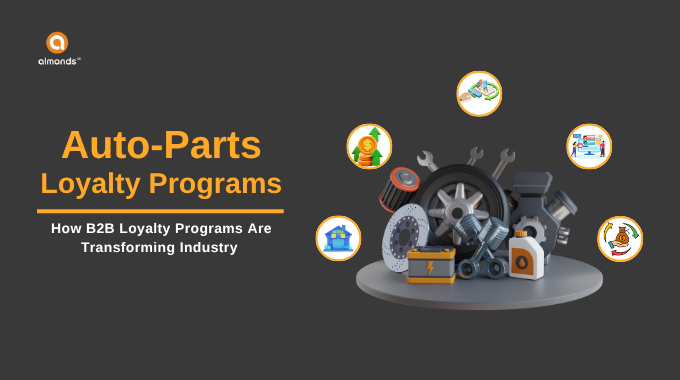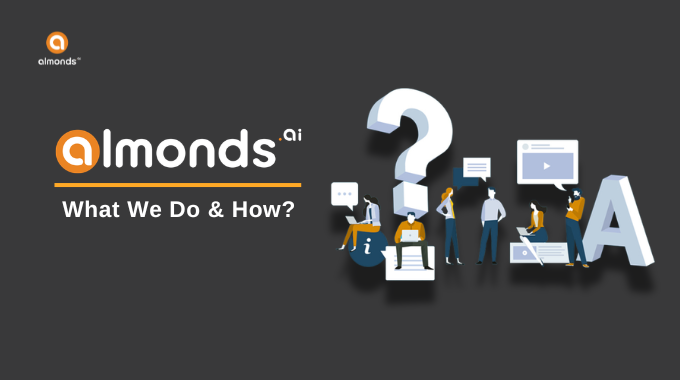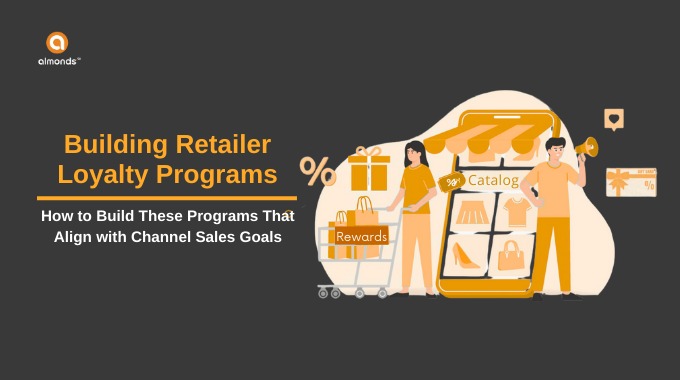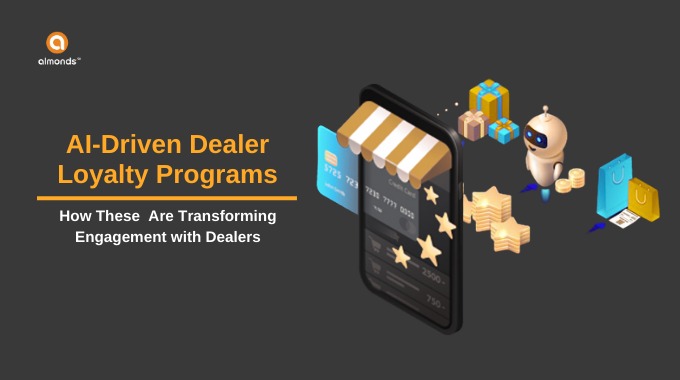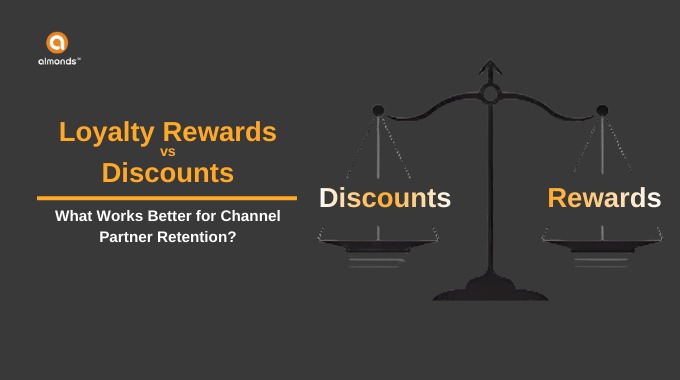The automotive parts industry in India relies heavily on a network of distributors, dealers, retailers, and mechanics to deliver products to the end consumer. While this channel-driven approach has expanded reach, it also brings challenges:

B2B loyalty programs are emerging as a strategic solution, helping automotive brands not only incentivize channel partners but also enhance performance, build long-term relationships, and gain critical business insights. From spare parts and lubricants to tires and accessories, these programs are reshaping how brands interact with their partners across India.
This blog explores the key problems in the Indian automotive channel, how loyalty programs address them, and the best practices driving results in today’s market.
Key Challenges in the Automotive Channel
1. Low Engagement Among Partners
Independent mechanics, retailers, and distributors often operate with minimal emotional connection to brands. Without consistent engagement, they prioritize convenience or price over brand preference. Studies show that 70% of channel partners are willing to be engaged but need structured programs to stay motivated.
Solution
Loyalty programs maintain continuous touchpoints through mobile apps, WhatsApp updates, and gamified tasks. For example, Castrol India’s Fastscan app keeps mechanics engaged by rewarding scans of oil packs with points and contests, increasing participation and product advocacy.
2. Partner Retention and Loyalty
The aftermarket is highly competitive. Without loyalty incentives, distributors and mechanics are easily swayed by competitors offering better margins or promotions. Frequent switching can reduce brand preference and long-term sales stability.
Solution
Programs like Shell’s Go+ reward mechanics for purchases and training, creating a tangible reason to stay loyal. Hero MotoCorp’s GoodLife initiative also offers exclusive recognition and event access, making loyalty more than just monetary, it builds brand pride.
3. Driving Sales and Performance
Channel partners often lack motivation to prioritize specific SKUs, new product lines, or slow-moving inventory. Traditional incentives are inconsistent or non-personalized.
Solution
B2B loyalty programs tie rewards to specific sales objectives. Tiered incentives, short-term campaigns, and bonus points for strategic products encourage partners to push priority SKUs. JK Tyre’s Advantage Program rewarded high-performing dealers with exclusive incentives, driving 80% of their passenger car tire sales through enrolled partners.
4. Training and Skill Development
Mechanics and small retailers may lack knowledge about new products or technical skills, affecting installation quality and customer experience. Without structured training, manufacturers struggle to maintain standards.
Solution
Loyalty programs integrate learning with rewards. Mobil India’s Mechanic Unnati incentivizes training alongside product purchases, combining points, tiers, and certifications to increase knowledge and engagement. Bosch’s eXtra program provides online courses and rewards for completed modules, creating a well-trained partner network.
5. Sales Tracking and Data Collection
Limited visibility into secondary and tertiary sales creates forecasting and inventory challenges. Many local shops operate offline, making it difficult to track product movement accurately.
Solution
Loyalty programs require partners to upload invoices or scan product codes to earn points, creating verified first-party sales data. Programs like Bosch eXtra and Castrol Fastscan provide manufacturers real-time insights into product movement and partner activity. This data helps brands optimize inventory, measure partner performance, and plan targeted campaigns.
6. Compliance and Quality Assurance
Counterfeit products, gray market distribution, and fraudulent incentive claims threaten both brand reputation and partner trust.
Solution
Loyalty programs link rewards to compliance. TVS Motor’s Apache Rewards incentivizes mechanics to use genuine parts, while Ashok Leyland’s Elite Rewards ensures points are issued only for verified product purchases. Programs also employ digital verification, multi-level approvals, and co-branding perks to reduce fraud and strengthen authorized sales channels.
Multi-Category Impact in Automotive Industry
B2B loyalty programs in India have evolved beyond simple point collection. Across automotive product segments, they are now designed to drive engagement, boost sales, and improve partner relationships. Here’s how different categories are leveraging loyalty programs effectively:
1. Lubricants
Brands such as Castrol, Shell, IndianOil, and Mobil reward mechanics and service centers for recommending and selling their products. Programs often include tiered incentives based on sales volume, early adoption of new formulations, and participation in training modules.
Impact
- Mechanics become brand advocates, increasing repeat sales.
- Brands can introduce new products quickly via incentivized demos.
- Data captured from partner transactions helps forecast demand and optimize stock across regions.
Example: Castrol’s Fastscan app tracks sales and offers instant points for each oil pack sold, which can be redeemed for gadgets or merchandise, boosting both partner satisfaction and product penetration.
2. Spare Parts
Manufacturers like Bosch, TVS, Hero, Mahindra, and Ashok Leyland use loyalty programs to drive performance across distributors, retailers, and workshops. Programs reward consistent sales of high-margin components such as filters, brake pads, belts, and clutches.
Impact
- Retailers and workshops prioritize brands with structured rewards.
- Encourages proper stock rotation and reduces slow-moving inventory.
- Supports brand compliance by incentivizing genuine parts usage over counterfeit alternatives.
Example: Bosch eXtra incentivizes mechanics to complete skill-based tasks while selling authentic parts, combining training with financial rewards.
3. Tires
Tire manufacturers like JK Tyre and Apollo Tyres use B2B loyalty programs to strengthen dealer networks. Programs are structured to reward repeat orders, timely payments, and promotion of seasonal or specialized tire lines.
Impact
- Enhances dealer loyalty and reduces attrition to competitors.
- Promotes new product launches and seasonal campaigns.
- Provides brands with granular visibility on regional demand trends.
Example: JK Tyre’s dealer rewards program gives points for every tire sold, with higher rewards for bulk purchases and participation in product promotion campaigns.
4. Accessories & Car Care Products
Companies like 3M, Asian Paints, and Sonax incentivize retailers and installers for both product sales and training participation. Rewards include points, certification badges, and exclusive perks for top performers.
Impact
- Partners develop technical expertise and confidence in upselling.
- Strengthens brand recall in the aftermarket.
- Encourages adherence to quality standards, ensuring customer satisfaction.
Example: 3M rewards workshops for completing online tutorials and installing branded accessories, combining skill development with tangible incentives.
Best Practices
- Data-Driven Personalization: Segment partners by role, region, or performance tier to deliver tailored rewards and communication.
- Omnichannel Access: Offer mobile apps, WhatsApp integration, and offline-compatible tools to reach partners across all touchpoints.
- Instant Rewards & Gamification: Reward partners in real-time with points, vouchers, and interactive challenges to maintain engagement.
- Multi-Tier Systems: Recognize top performers with exclusive perks, creating aspirational goals that drive higher engagement.
- Integration with Operations: Align loyalty programs with inventory management, sales reporting, and CRM systems for seamless operations.
- Ethical and Sustainable Rewards: Offer eco-friendly or socially responsible rewards to enhance brand perception among partners.
Conclusion
India’s automotive parts industry faces complex channel challenges: low engagement, loyalty attrition, skill gaps, data invisibility, and compliance risks.
B2B loyalty platforms provide a comprehensive solution, aligning incentives with business goals, engaging partners, driving performance, and enhancing market transparency.
Well-executed programs, like Bosch eXtra, Castrol Fastscan, and Hero GoodLife, demonstrate measurable benefits: higher sales, better-trained partners, increased retention, and stronger brand advocacy.
For automotive companies seeking sustainable growth, investing in channel partner loyalty programs is no longer optional; it is a strategic imperative that turns a distributed, fragmented network into an engaged, accountable, and high-performing ecosystem.
